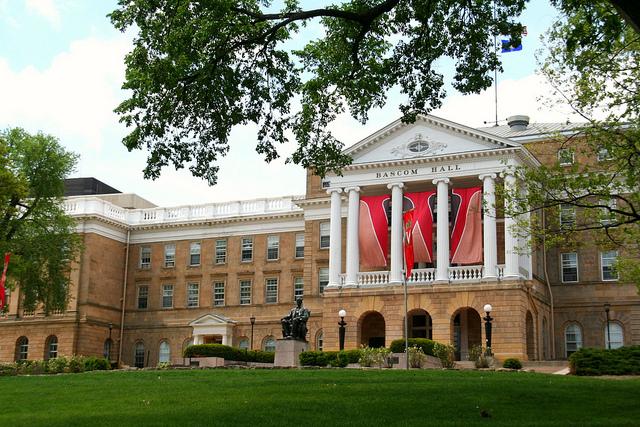Chancellor Rebecca Blank and other University of Wisconsin administrators gathered with students Wednesday to discuss issues of racial inequality and created a plan to address instances of stereotyping and discrimination.
“Madison gives you a real opportunity at a high class education that you are going to graduate from, and that, more than anything else, is why people should come here,” Blank said.
But why would anyone go to a university where the under-reporting and lack of investigations of sexual assaults run rampant, student protesters are shut out of Board of Regents meetings on free speech, homeless students are swept under the rug and a socio-economic divide is consistently growing?
While these problems can easily be blamed on UW’s slow and sometimes inadequate responses, the real solution never lies in administration or government. It’s easy to look to them for solutions — sure, I do it all the time. But true solutions come from the community.
Student diversity leader Mariam Coker, said at the forum these conversations must extend beyond the administration.
“The people who need to be here are not here. [The faculty] are responsible for creating a safe space for all of your students,” Coker said.
She is right that faculty should have been there, but wrong in the fact that they are responsible for creating a safe space for all students. It is up to community individuals to do that, not just the faculty.
It is because we place blame on UW administration and faculty that we miss the root cause of discrimination. Faculty cannot stop someone whose hatred, stupidity or ignorance pushes them to put swastikas on someone’s door. Administration cannot stop someone from saying racial expletives at a party. Faculty and administration alone cannot stop racism or discrimination.
This is why it is about time we stop looking elsewhere for answers and start looking in the mirror. We need to start looking at the person next to us and the other students who populate the UW community.
It’s easy to blame others for problems. I, like everyone else, do it often. Though I may sound like some white-privileged kid who has never experienced this before, that is not what this is.
I may be white, I may have been lucky enough to grow up in a middle class family, but I’m also gay. So, to some extent, I know what hate is. But I also know hate and discrimination will not be solved by ordering those in charge to fix it. It takes a community, and it takes us to fix our problems.
Luke Schaetzel (lschaetzel@wisc.edu) is a sophomore majoring in journalism and political science.


